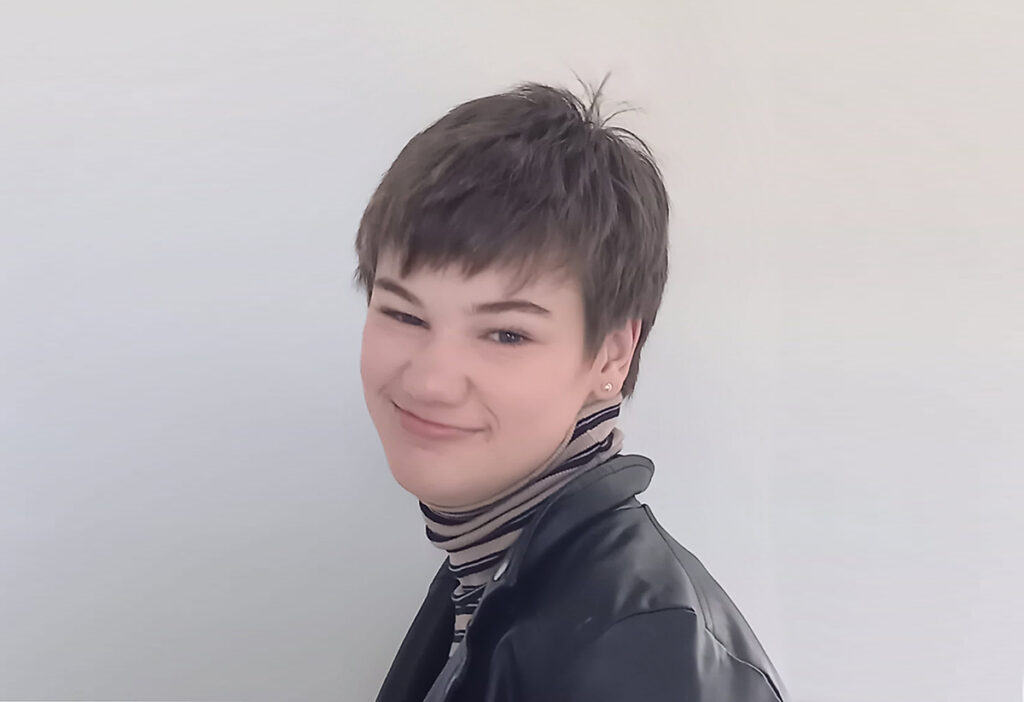Now, more than ever, we are very self-conscious as a society. Growing up in the digital era as a disabled person, my self-image has evolved lots over the years.
Now, more than ever, we are very self-conscious as a society. Growing up in the digital era as a disabled person, my self-image has evolved lots over the years.Now, more than ever, we are very self-conscious as a society. Growing up in the digital era as a disabled person, my self-image has evolved lots over the years.
As I have discussed before; I knew I was different from my mainstream peers from a young age. Seven-year-old me was incredibly hyperaware that I didn’t look, act or speak like the other girls in my class and this meant that I was constantly – both consciously and unconsciously – chasing this non-existent able-bodied, ‘perfect’ version of myself that knew all about popular music, wore nice jewellery and, most importantly, was friends with everyone. In primary school, claiming to like One Direction was enough for the other girls to accept you as one of them. Things were pretty simple and honestly, I was very confident within myself. At the same time, I didn’t completely conform, and despite trying a little harder towards the end of primary school, I definitely remained true to myself.

Moving to secondary school (debuting the ‘pixie cut’) everything changed. It seemed all the other girls in my year had transformed over summer into straight-haired, fake-tanned, makeup-wearing clones of each other, while I had somehow become an eight-year-old boy. I was so insecure that I avoided speaking in classes and even eye-contact with other teenagers terrified me. This is also the same time that I began using an electric wheelchair. So many of the peers I had grown up with weren’t used to seeing me in this bulky, noisy machine which I felt had confined me to a life of isolation and awkward conversations. I’d stopped trying to conform with others, which you’d think was a good thing, but actually just meant I had stopped trying to be included.
I’m sure every teenager could tell you about their own insecure phase, but I genuinely believe as a disabled person in a mainstream school, there’s an internal pressure to be as ‘normal’ as you can and it definitely took a long time for me to grow out of and unlearn all of this. For me, it started with blogging as I’d never heard of other people at my school blogging and it became an outlet for me to be completely myself and not putting-on the facade of what I thought people wanted me to be, I also stopped pushing away these ‘disability things’ like having assistants, and rather than hating that I needed help, I formed meaningful relationships with them. Taking pressure off myself to be included by the popular kids and reconnecting with some older friends from primary school also allowed me to stop feeling like I had to try so hard, and I let go of the social obligations that I was trying so hard to fulfil.
My self-image has constantly changed and challenged me to accept myself and my disability in many ways. While I don’t claim to have overcome these challenges, I think I have an understanding and compassion for myself now, that I lacked when I was younger.
About Melissa Cassidy
Melissa Cassidy discusses topics surrounding disability as well as her own experiences as a teenager with cerebral palsy. She has also published a children’s book called ‘Doodle The Poodle’s Big Day Out’ (published by Alder Books).
Visit her blog at: buttonsandramps.wordpress.com
Twitter: @ramps_and
Instagram: @buttonsandramps



